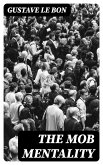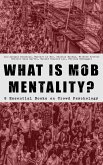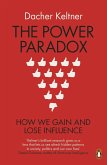This edition brings to you Le Bon's two most celebrated works, "The Crowd: A Study of the Popular Mind" and "The Psychology of Revolution", which made a breakthrough in what is now known as crowd psychology. Le Bon theorised about a new entity, "psychological crowd", which emerges from incorporating the assembled population not only forms a new body but also creates a collective "unconsciousness". As a group of people gather together and coalesces to form a crowd, there is a "magnetic influence given out by the crowd" that transmutes every individual's behaviour until it becomes governed by the "group mind"._x000D_ Gustave Le Bon was a French polymath whose areas of interest included anthropology, psychology, sociology, medicine, invention, and physics. Ignored or maligned by sections of the French academic and scientific establishment during his life due to his politically conservative and reactionary views, Le Bon was critical of democracy and socialism. Le Bon's works were influential to such disparate figures as Theodore Roosevelt and Benito Mussolini, Sigmund Freud and José Ortega y Gasset, Adolf Hitler and Vladimir Lenin.
Dieser Download kann aus rechtlichen Gründen nur mit Rechnungsadresse in A, B, BG, CY, CZ, D, DK, EW, E, FIN, F, GR, H, IRL, I, LT, L, LR, M, NL, PL, P, R, S, SLO, SK ausgeliefert werden.









